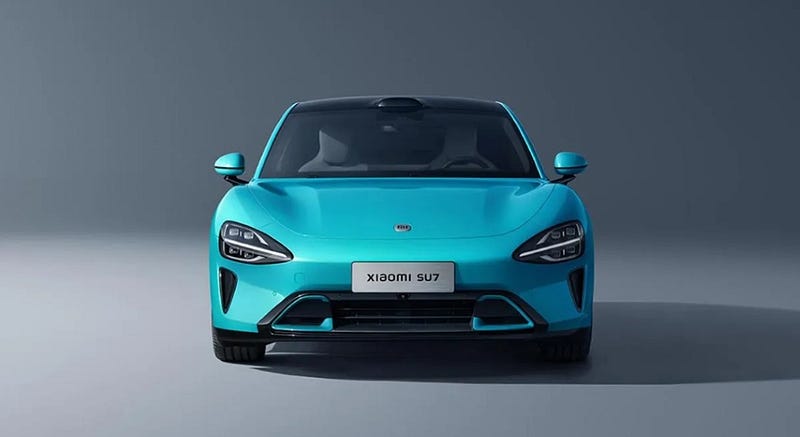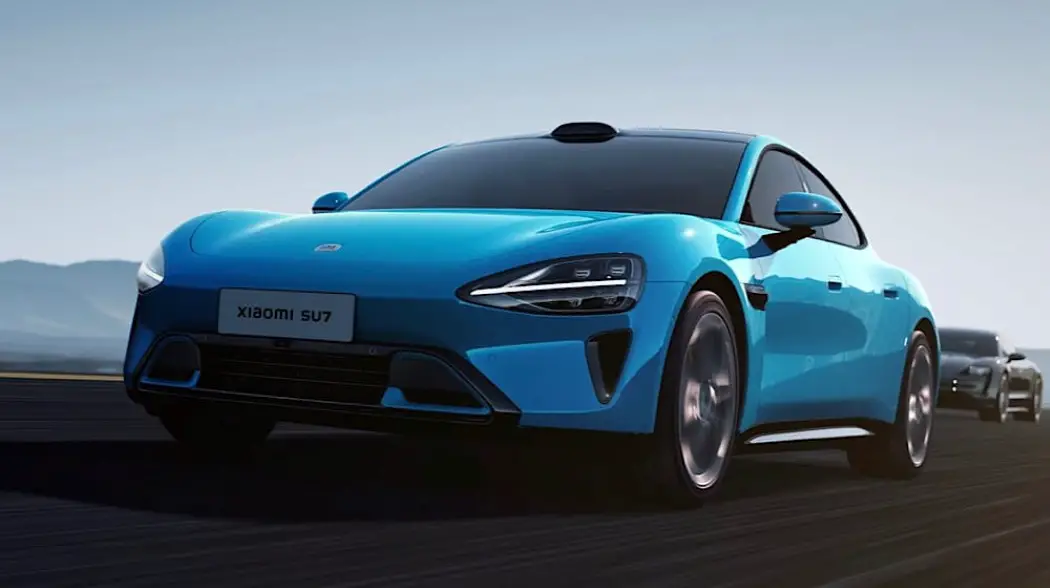Xiaomi, a Chinese company that makes electronic devices, recently talked about its upcoming entry into China’s crowded electric vehicle market. They want to compete with big car companies like Tesla and Porsche. Xiaomi has invested over 10 billion yuan (about $1.4 billion) in developing its new car model, called Xiaomi SU7.
According to the CEO, Lei Jun, the Xiaomi SU7 is currently in trial production and is expected to be available in the domestic market in a few months. He mentioned this in a post on the X social media platform (formerly known as Twitter) on Tuesday, saying that the final price for the car has not been decided yet.
In Mandarin, the Xiaomi SU7, pronounced as “Sue Qi,” outperforms Porsche’s Taycan and Tesla’s Model S in terms of acceleration and other measures, as Lei explained in a three-hour presentation on Thursday.
He expressed ambitious goals to lead the industry, especially in autonomous driving. Lei also mentioned that the design team behind the SU7 had previously worked at BMW and Mercedes-Benz.
The sales of Xiaomi’s SU7 are set to start in 2024, following over three years of development. During this time, electric vehicles have become popular in China’s competitive market, and local car manufacturers have distinguished their products by incorporating advanced technology into their cars.
Xiaomi, primarily recognized for its smartphones and home appliances, sees an opportunity in this trend. The company has expressed its intention to establish a “Human x Car x Home” smart ecosystem.
Xiaomi’s SU7
On Thursday, Lei announced that the SU7 is connected with Xiaomi’s smartphones and internet-connected home appliances. He highlighted the company’s commitment to maintaining data privacy across these devices and designing a car that exceeds U.S. safety standards for rear-end collisions.

Lei mentioned that the vehicle will also work seamlessly with Apple’s iPhone, iPad, CarPlay, and AirPlay. Despite widespread speculation about Apple’s car plans, they have not yet released a car.
On Tuesday, two models of the Xiaomi SU7 were included in a list of tax-exempt new energy vehicles released by the Ministry of Industry and Information Technology.
According to the document, these cars are fully powered by batteries, providing a driving range of 628 to 800 kilometers (390 to 500 miles). The ministry identified a subsidiary of the state-owned Baic Group as the manufacturer of the Xiaomi SU7.
Even though the car is not on the market yet, Xiaomi has begun offering its top-tier smartphone and smartwatch in the colors of the SU7 sedan, namely “aqua blue” and “olive oil green.”
The cost of the SU7 hasn’t been disclosed yet, but Lei suggested that it won’t come at a low price. He also refuted rumors suggesting a price tag of 99,000 yuan or 140,000 yuan.
Xiaomi’s Tech Event and New EV Launches
The Xiaomi car technology event coincides with the introduction of new electric vehicles by various domestic EV companies.
- Nio on Saturday debuted its 800,000 yuan ET9, set to begin deliveries in the first quarter of 2025.
- Huawei’s Aito brand on Tuesday unveiled its M9 SUV — starting at 469,800 yuan and due to begin mass deliveries in late February 2024.
- Zeekr, backed by Geely, on Wednesday announced its 007 sedan would start at 209,000 yuan with deliveries beginning on Jan. 1.
Xpeng, supported by Xiaomi since 2019, plans to unveil its X9 vehicle on January 1, 2024. Before the Thursday event, Lei posted pictures on the popular Chinese social media platform Weibo, depicting buildings illuminated with messages from Xiaomi expressing admiration for BYD, Nio, Xpeng, Li Auto, and Huawei.
On Thursday, Xiaomi’s shares in Hong Kong trading dropped by 0.25%. Despite this, the company’s Hong Kong-traded shares have risen by over 40% this year. Xiaomi reported record sales exceeding $3 billion on various e-commerce platforms during this year’s Singles Day shopping festival.
Xiaomi has announced its intention to invest 20 billion yuan ($2.8 billion) in research and development this year, marking a 25% increase from 2022 and more than double the expenditure in 2020.
Conclusion
Xiaomi is entering China’s electric car market with the SU7, aiming to compete with big players. The car boasts connectivity, safety, and performance. Other Chinese electric vehicle companies are also launching new models. Xiaomi’s CEO expressed admiration for industry peers. The company’s shares fluctuated, but it reported strong sales. Xiaomi plans substantial investments in research and development, signaling confidence in future innovation.







